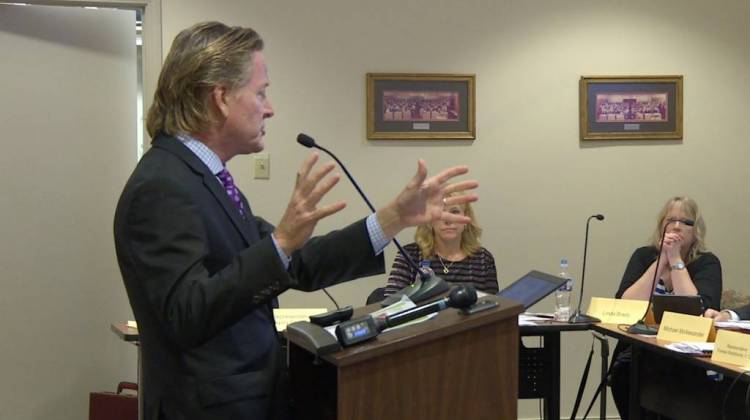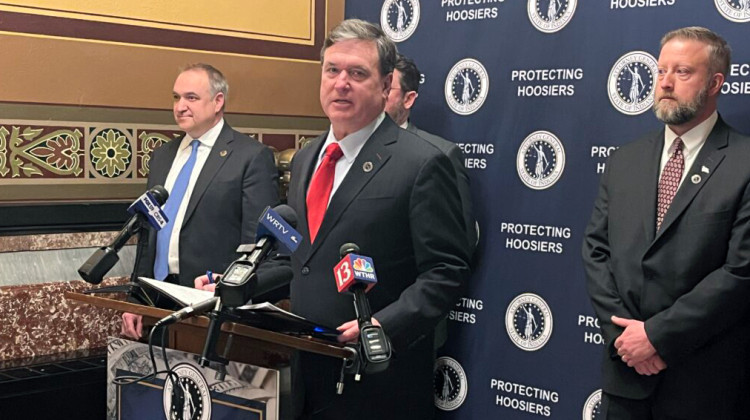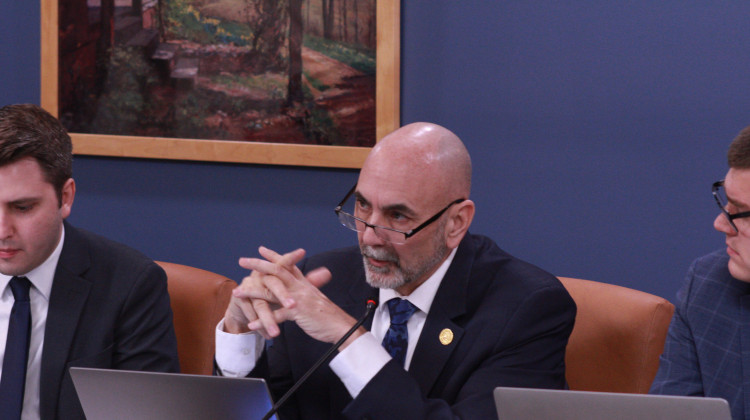
Matt Brooks, CEO of the Indiana Council of Mental Health Centers, discusses substance abuse treatment options with a legislative committee.
Jill Sheridan/IPB NewsAn estimated half of all people in state prisons have a substance abuse disorder. A few years ago Indiana lawmakers passed a bill revising the state’s criminal code to place nonviolent drug offenders in treatment instead of prison.
A legislative study committee, tasked to examine treatment options, finds there are many barriers.
Indiana Council of Mental Health Centers CEO Matt Brooks says Indiana is making moves to address this as a health issue instead of a criminal one
“You’re always going to be the dog chasing its tail if you don’t treat the person instead of the drug,” says Brooks.
In doing this he says Indiana has a population problem.
“The number one issue that we have in terms of being able to support the kind of intensive treatment is enough qualified licensed professionals to carry out this work,” says Brooks.
Medicaid expansion and coverage changes through the Affordable Care Act have helped link care instead of incarceration, but those that testified say the state still needs to enhance reimbursement rates.
Candice Rothenbuhler, vice president at Acadia Healthcare, says Indiana’s recent move to cover methadone through Medicaid is a good step.
“Because there are so many that come to us and disengage because they have to choose between feeding their kids and their treatment program,” says Rothenbuhler.
She says other medication treatment options could help.
READ MORE: To Grow Market Share, A Drugmaker Pitches Its Product To Judges
“Currently most programs are only offering the Vivitrol option in jail,” says Rothenbuhler. “But I ask the question why?”
Other suggestions include early intervention, law enforcement screening and more uniform regulations for treatment facilities.
 DONATE
DONATE









 Support WFYI. We can't do it without you.
Support WFYI. We can't do it without you.